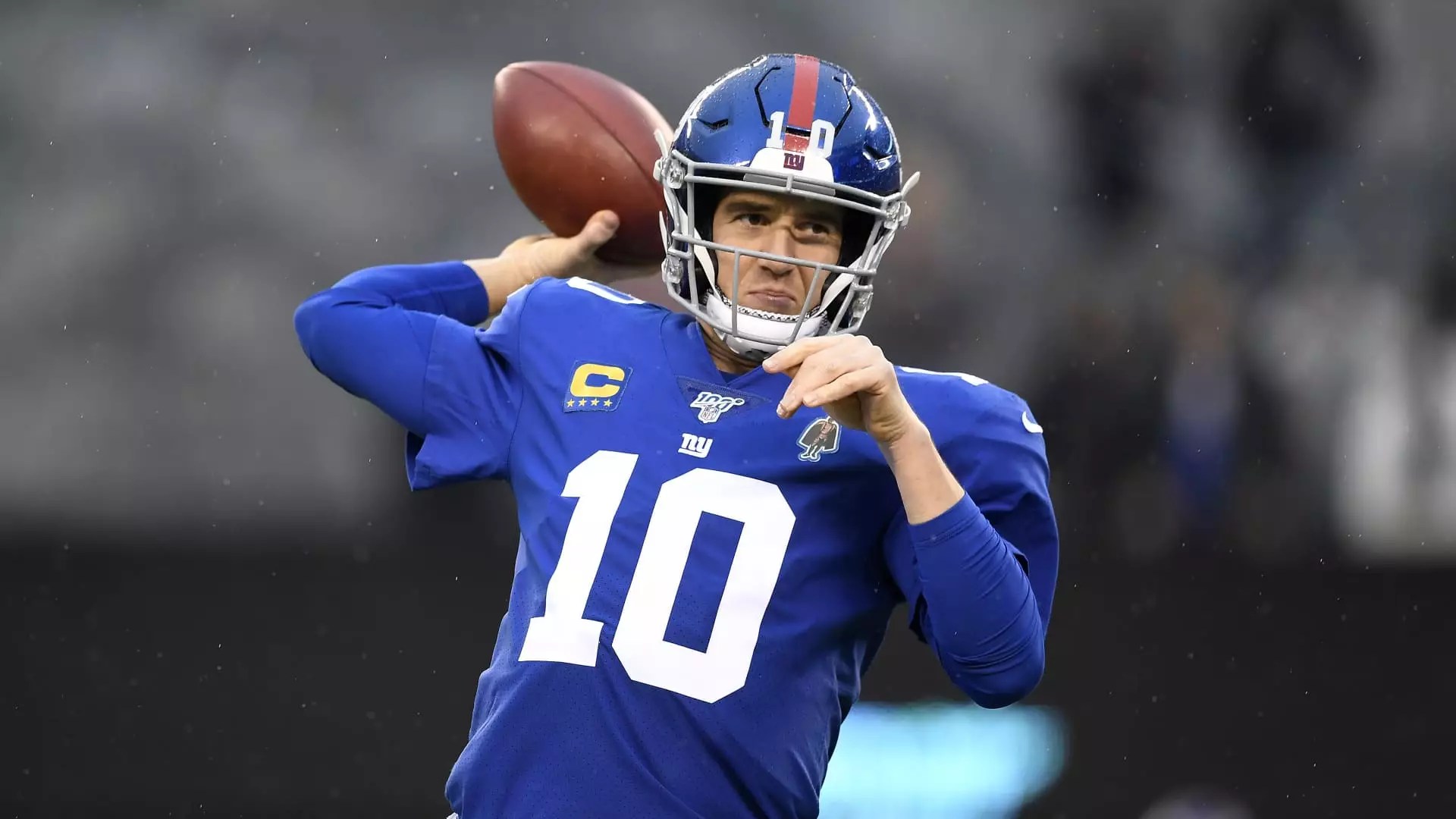In an era where NFL team valuations soar to astronomical figures, there’s a dangerous allure that distracts many from the real financial prudence. Eli Manning’s decision to step back from purchasing a stake in the New York Giants is not merely a matter of pride or legacy; it exemplifies a keen understanding of market saturation and inflated assets. Despite the illusion that these valuations point toward limitless wealth creation, Manning’s candid acknowledgment — that he is “priced out” — signals a crucial insight: the current frenzy in sports ownership is more hype than sustainable growth.
For many casual fans and aspiring investors, the idea of owning a slice of a billion-dollar franchise taps into greed and the romance of fame. But beneath that shiny veneer lies complex financial realities. Valuations are often driven upwards by aggressive bidding, media hype, and the spectacle of high-profile sales, rather than solid fundamentals. Manning’s refusal to buy into the inflated prices demonstrates financial restraint and an understanding that some opportunities are fundamentally overvalued, risking significant loss if the bubble bursts.
Market Frenzy or Legitimate Growth? A Critical Look
The surge in NFL team valuations—from the Giants’ estimated $7.85 billion to the Eagles’ $8.3 billion, and even the San Francisco 49ers’ recent $8.5 billion sale—seems to confirm a bulletproof upward trajectory. But this rapid escalation is unsustainable in a matured market where the core principles of valuation—cash flows, profitability, and competitive advantage—are often sidelined in favor of speculative bidding wars. Manning’s assertion that a minuscule 1% stake would now cost him a decade’s worth of earnings highlights the absurdity of current price tags.
The same pattern plays out across other leagues, with the Los Angeles Lakers reaching a valuation of $10 billion—vastly exceeding their historical earnings and revenue streams. This disconnect between perception and reality suggests a speculative bubble, one that Manning’s skepticism rightly questions. He recognizes that these valuations are more about status and branding than genuine value, a perspective seemingly lacking among many investors and insiders caught in the frenzy.
The Hidden Risks of Overvaluation and the Center-Right Viewpoint
From a center-right, liberal-conservative standpoint, high valuations in sports franchises should be viewed with cautious skepticism. Such assets are not passive investments; they are complex, illiquid, and heavily reliant on league-wide revenues and media rights. Overpaying for a stake exposes investors—and by extension, the clubs—to risks of market correction, regulatory change, or shifts in consumer entertainment preferences.
Manning’s stance reflects a pragmatic approach: value is not dictated solely by the emotional appeal or current media hype but by fundamental financial principles. His decision to avoid potential conflicts of interest and focus on his media and entrepreneurial pursuits signifies an understanding that true wealth lies in diversified assets and income streams, not in overly inflated franchise valuations.
He perceives the opportunity cost too high, and rightly so. When the valuation metrics are driven by illusion, not fundamentals, investing becomes a gamble—one that Manning wisely chooses to abstain from. His insight serves as a reminder that despite the glamour and prestige associated with NFL ownership, fiscal responsibility must remain paramount. What looks like a lucrative deal on paper can quickly turn sour if the market corrects or if the valuation bubble burst.
What Future Investors Should Learn from Manning’s Caution
In an increasingly speculative environment, Manning’s position underscores the importance of skepticism and financial discipline. While the narrative of billionaire owners and multimillion-dollar stakes dazzles on television, the reality is that only those with a clear understanding of intrinsic value and risk management should consider such investments.
For everyday investors and even institutional players, the lesson is straightforward: don’t buy into hype. Just because an asset is valued at billions doesn’t mean it’s a wise buy. Manning’s choice to walk away highlights that true savvy lies in recognizing the signs of overvaluation, resisting societal pressures to conform to status symbols, and prioritizing long-term stability over short-term ego.
He emphasizes that the luxury of high valuation does not grant permission to overspend or chase illusions. Instead, it calls for a measured, disciplined approach that balances ambition with sensibility, especially in sectors heavily influenced by hype and emotion rather than fundamentals.
Manning’s perspective champions financial integrity in the sports business — a message that translates well beyond the gridiron into broader economic considerations. Rather than falling prey to the intoxicating rush of rising valuations, investors should learn to see through the illusion and pursue investments rooted in genuine value, sustainability, and pragmatic growth.


Leave a Reply